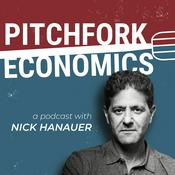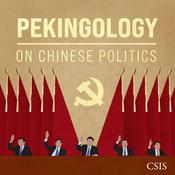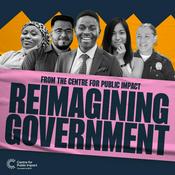11 episodes
Episode 51: How did Deng Xiaoping's reform and opening end in the revival of totalitarian rule - with Prof. Pei Minxin
2025/12/09 | 1h 11 mins.The transformative socioeconomic changes China has experienced since Deng Xiaoping launched "reform and opening" in 1979 have turned an impoverished society into a global superpower. But instead of a freer and more open society fully integrated into the existing liberal international order, economic modernization under one-party rule has only revived totalitarian rule and triggered an escalating geopolitical conflict with the U.S. Although this tragic and potentially catastrophic outcome is not inevitable, Deng's strategy to save the Chinese Communist Party with capitalist tools made the return of strongman rule under Xi Jinping and reversal of reform an accident waiting to happen.
-
Minxin Pei is the Tom and Margot Pritzker ‘72 Professor of Government and George R. Roberts Fellow at Claremont McKenna College. In 2019 he was the inaugural Library of Congress Chair on U.S.-China Relations. Prior to joining Claremont McKenna College in 2009, he was a senior associate at the Carnegie Endowment for International Peace and served as its director of the China Program from 2003 to 2008. He was an opinion columnist for Bloomberg (2023-2024) and the author of From Reform to Revolution: The Demise of Communism in China and the Soviet Union (1994); China’s Trapped Transition: The Limits of Developmental Autocracy (2006); China’s Crony Capitalism: The Dynamics of Regime Decay (2016); The Sentinel State: Surveillance and the Survival of Dictatorship in China (2024); and The Broken China Dream: How Reform Revived Totalitarianism (2025).
Minxin received his Ph.D. in government at Harvard and taught at Princeton University (1992-1997). He is the recipient of the National Fellowship at the Hoover Institution at Stanford and the Robert McNamara Fellowship of the World Bank. His op-eds and columns have appeared in the New York Times, the WSJ, the Washington Post, FT, Nikkei Asian Review, Project Syndicate, the Economist, Bloomberg, and other publications.Episode 50: EP50 - 'Silence on Human Rights: Economic Coercion by China and Deterrence from Criticism' with Stephanie Char
2025/11/11 | 1h 5 mins.Abstract: Why do states decide to criticize come countries, but not others, over domestic human rights abuses? States often criticize rights violations abroad to improve human rights or bolster their own legitimacy, while refraining from criticizing allies. States can also be deterred from criticism by countercriticism coercion, or economic sanctions in response to criticism. I theorize that states are more likely to be deterred from criticizing countries with a reputation for countercriticism coercion, notably China. States learn from other countries’ past responses to criticism, rather than their economic power, stated positions on human rights, or domestic policies. UN member states are less likely to criticize rights violations in countries with reputations for countercriticism coercion. Elite interviews demonstrate how China’s reputation for countercriticism coercion deterred Indonesia and Malaysia from criticizing China over human rights in Xinjiang. This study has implications for the effectiveness of sanctions and resilience of international human rights norms.Episode 49: 'Chinese Encounters With America: Journeys That Shaped the Future of China' with Deborah Davis and Terry Lautz, Co-editors and Authors
2025/10/09 | 58 mins."Chinese Encounters With America," published by Columbia University Press, tells the stories of twelve women and men whose experiences with the United States not only transformed their own lives but also influenced China’s quest to become a modern global nation. Their professions range from diplomacy, business, and science to music, sports, and civil society. Their lives show how Chinese citizens have interpreted and engaged with America, especially since the opening of relations in the 1970s. At a time when Chinese and American relations are dominated by competition and conflict, this book speaks to the value of shared interests and values.Episode 47: EP47 - Yun Sun - 05.05.2025 - China’s Trump Strategy with Yun Sun
2025/5/06 | 1h 11 mins.Abstract: In the months since Donald Trump won the U.S. presidential election in November, policymakers in Beijing have been looking to the next four years of U.S.-Chinese relations with trepidation. Beijing has been expecting the Trump administration to pursue tough policies toward China, potentially escalating the two countries’ trade war, tech war, and confrontation over Taiwan. The prevailing wisdom is that China must prepare for storms ahead in its dealings with the United States. As we approach the symbolic measure of the first 100 days of the second Trump administration, what Trump disruptions are Beijing taking advantage of to advance their own aims? Does the escalating tariff war change that calculus?
Bio: Yun Sun is a Senior Fellow and Co-Director of the East Asia Program and Director of the China Program at the Stimson Center. Her expertise is in Chinese foreign policy, U.S.-China relations and China’s relations with neighboring countries and authoritarian regimes. From 2011 to early 2014, she was a Visiting Fellow at the Brookings Institution, jointly appointed by the Foreign Policy Program and the Global Development Program, where she focused on Chinese national security decision-making processes and China-Africa relations. From 2008 to 2011, Yun was the China Analyst for the International Crisis Group based in Beijing, specializing on China’s foreign policy towards conflict countries and the developing world. Prior to ICG, she worked on U.S.-Asia relations in Washington, DC for five years. Yun earned her master’s degree in international policy and practice from George Washington University, as well as an MA in Asia Pacific studies and a BA in international relations from Foreign Affairs College in Beijing.Episode 46: EP46 - The Art of State Persuasion - China's Strategic Use of Media in Interstate Disputes featuring author, Dr. Frances Yaping Wang.
2025/4/29 | 1h 36 mins.Abstract: Why do nations actively publicize previously overlooked disputes, and why does domestic mobilization sometimes fail to lead to aggressive policy? The Art of State Persuasion explores China’s strategic use of state propaganda during crises, revealing why certain disputes are amplified while others are downplayed. This variation depends on the alignment, or lack thereof, between Chinese state policy and public opinion. When public sentiment is more moderate than the government’s foreign policy objectives, a “mobilization campaign” is initiated. Conversely, when public opinion is more hawkish, a “pacification campaign” is deployed to mollify public sentiment.
Bio: Frances Yaping Wang is an Assistant Professor of Political Science at Colgate University. She was previously an Assistant Professor at the Singapore Management University, a postdoctoral fellow at the University of Notre Dame’s International Security Center, a Minerva-United State Institute of Peace Scholar, a predoctoral fellow at the Institute for Security and Conflict Studies of the George Washington University, and a senior editor at the Carnegie Endowment for International Peace. She received her PhD from the University of Virginia.
More Government podcasts
Trending Government podcasts
About China and the World Program's Podcast
The Columbia-Harvard China and the World Program, was founded in 2004 and and seeks to integrate an advanced study of China's foreign relations into international affairs, politics, economics, regional studies, IPE, IR, Policy, etc.
Podcast websiteListen to China and the World Program's Podcast, Children's Rights and many other podcasts from around the world with the radio.net app

Get the free radio.net app
- Stations and podcasts to bookmark
- Stream via Wi-Fi or Bluetooth
- Supports Carplay & Android Auto
- Many other app features
Get the free radio.net app
- Stations and podcasts to bookmark
- Stream via Wi-Fi or Bluetooth
- Supports Carplay & Android Auto
- Many other app features


China and the World Program's Podcast
Scan code,
download the app,
start listening.
download the app,
start listening.


























